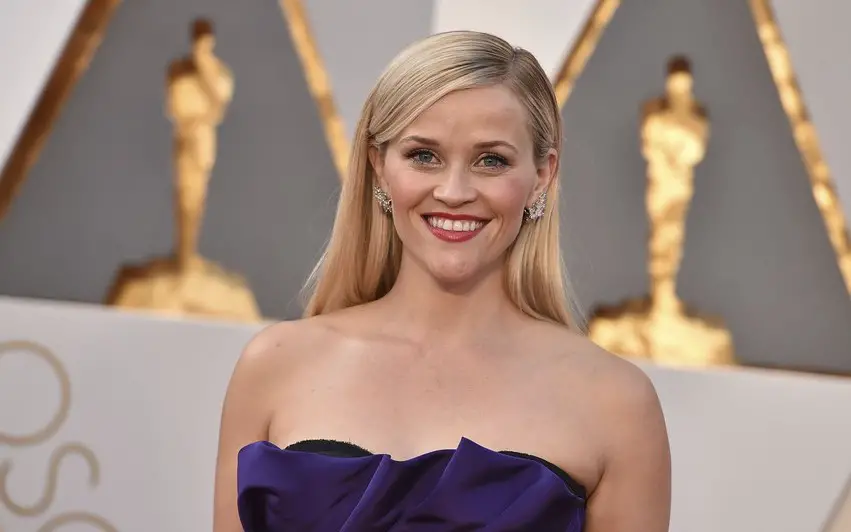In 2012, the film company Pacific Standard made its break-out debut by taking a different approach to cinema. Co-founded by Reese Witherspoon and Bruna Papandrea, the production company has a strong focus on women in film. Witherspoon, in her 2015 Woman of the Year speech, spoke about her driving force to start a company with her own money, time and energy.
Witherspoon focused on bringing women to the surface of the film industry, as women were not being represented in an empowering light or being put in powerful positions. She was starting to look to cast women as major characters in film with her then known production company, Type A Films.
Witherspoon’s Woman of the Year speech was three years ago — today, women are starting to break out and become a crucial force in the entertainment industry, and they are certainly not stopping anytime soon; the fight to show the need for both strong female and male leads in the entertainment industry is incredibly important. Witherspoon’s stance in film production, by creating Type A films, is just one example of women in entertainment making strides in the male-dominated field.
In the early 2000s, Witherspoon created Type A Films and wanted to have the company focus on woman roles with strong and driven characters — much like the description of what a “Type A” personality is. By already having a foot in the door within the entertainment industry, she was able to successfully create the company; Witherspoon had previously starred in some films that gave women complex and driven roles.
Her breakthrough in the industry was through her critically acclaimed acting in “Legally Blonde” as a seemingly ditzy blonde girl who makes it big at Harvard Law School. At the time of “Legally Blonde,” films with strong female leads were hard to come — and they still are today.
Many people might not know that Type A Films, which is known for five major films, had a pro-female lead policy. Type A films created both “Legally Blonde” and “Legally Blonde 2: Red, White and Blonde,” “Penelope,” “Four Christmases” and “Legally Blondes.”
“Legally Blonde” in 2001 kicked off the expansion of Type A films before Witherspoon’s career went dormant for a bit in the mid-thousands to early 2010. All of the films that were produced and created showed a strong, prominent and driven female taking center stage.
In the entertainment industry, women have worked hard to gain the recognition and the respect they deserve, with many women having pivotal moments in their careers that most do not know even existed. During the silent film era, actress Mary Pickford became one of the founders of the Academy of Motion Picture Arts and Science, known to many in the entertainment world as “the Academy;” out of the 36 founders, only three of them were famous women in the industry.
Powerful women like Pickford and Witherspoon have not been getting the credit they well deserve, but the tide seems to be changing. As of this year, Hollywood has had women dominate when it comes to awards like the Emmys and the Screen Actors Guild; women in the entertainment industry are breaking out of the shadows and dominating the scene.

In 2012, Type A Films took on a new name, but it has still held true to the ideas and foundation that first pioneered its place in the entertainment industry. Witherspoon and her business partner Bruna Papandrea successfully launched Pacific Standard and they went beyond wanting to focus primarily on strong female leads in films: they wanted to have opportunities for women both in front of and behind the camera.
Studies have shown that, when it comes to top films, employment opportunities for women to be both in front and behind the camera in the last 20 years has been stagnant. The presence of women behind the scenes is fairly low because of males dominating multiple facets of the filming industry, including writing, editing, producing and directing positions. Though, slowly but surely enough, women are gaining positions on the production side of the entertainment industry, and Witherspoon is just one of those women who has become a powerful dominant figure in the production realm.
By starting with the small film company Type A and then revamping it into Pacific Standard, the success the production company has had has only grown. Looking for their own content, Witherspoon and Papandrea would sift through books that truly focused on and had immense depth for female leads.
From 2012, the films “Gone Girl” and “Wild” were produced, which Witherspoon produced and acted in, and from there, the television hit “Big Little Lies” was made and suddenly the notion of focusing on women in entertainment didn’t seem so far-fetched anymore. Witherspoon’s success has made her a force to be reckoned with; she is now one of Hollywood’s most powerful females.
Gender inequality itself is never fully explained or addressed in the workforce, whether it be in entertainment, politics or any other field. Strong female leaders have usually been buried or have had their potentials crushed due to males being given roles over females. Younger female generations need to be able to envision themselves in roles to know that they can be successful in the future and that their dreams are possible and can actually be achieved.
Celebrities and the roles they play in Hollywood, then, hold a major grasp on the minds of younger generations and have a crucial influence on their behavior; if young females only see men in huge film roles, they’ll start to think that women, including themselves, cannot play those roles. In the world of Hollywood, Witherspoon has strived to change this notion and has instead given women in film a voice.
From a small company like Type A Films, her drive to feature and show the dynamic strength of women shows that anything is possible for female leaders. Witherspoon is just one piece of the puzzle when it comes to focusing on women in the entertainment industry — there’s still a lot of work to be done, but you can bet women are up to the task.

















